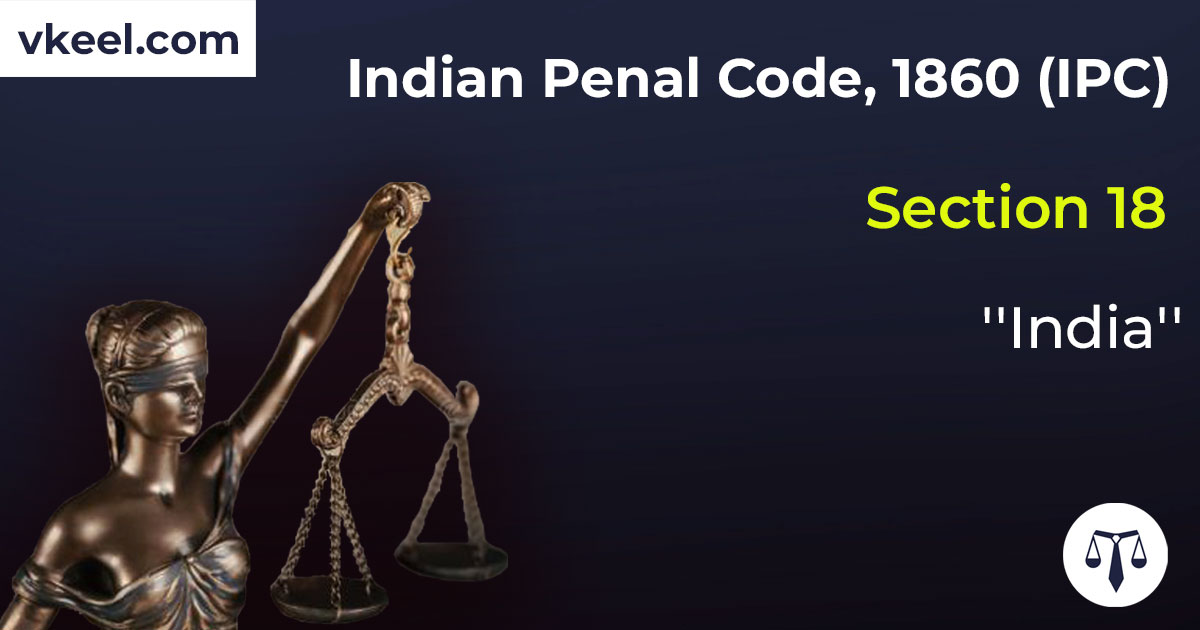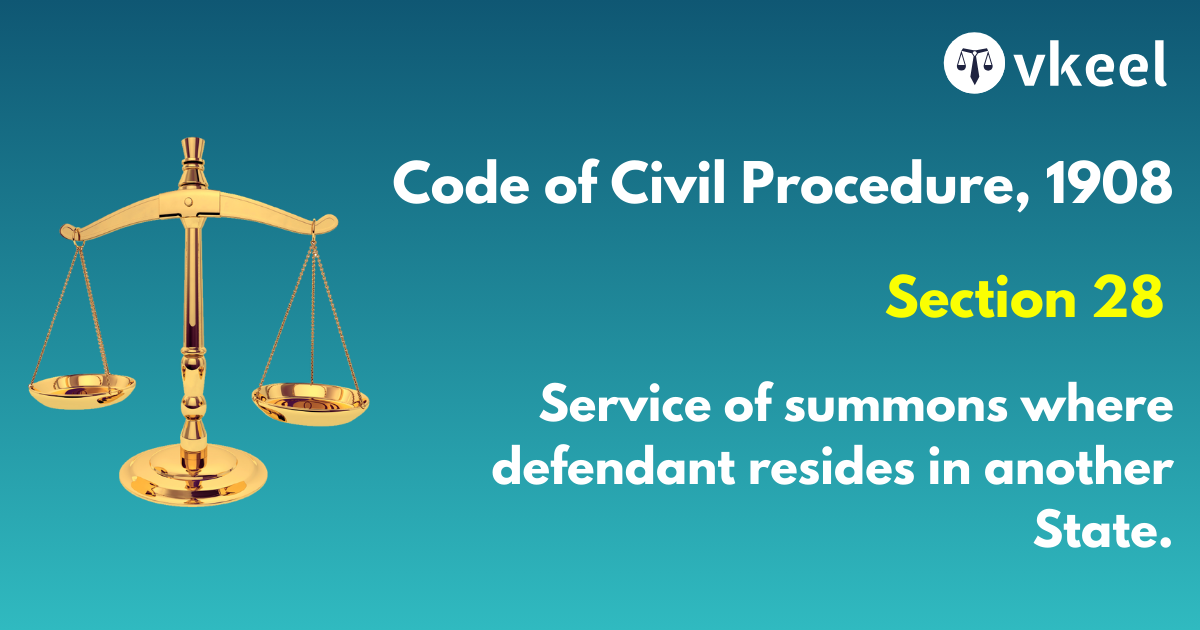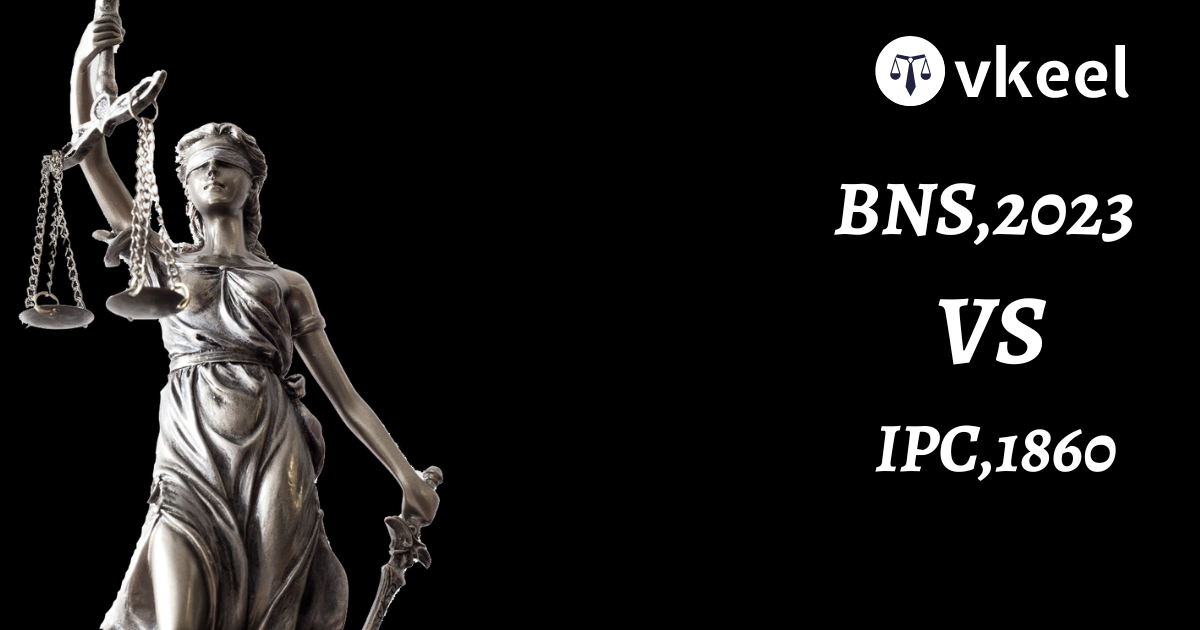Section 18 Indian Penal Code 1860 (IPC) – “India”
By Vkeel Team
Table of Contents
Description
“Section 18 Indian Penal Code 1860 (IPC)”
1[“India” means the territory of India excluding the State of Jammu and Kashmir.]
Introduction
Section 18 of the Indian Penal Code, 1860 (IPC) deals with the definition of the word “India” as used in the Code. The section provides a comprehensive definition of India, including its territories and jurisdictions, and helps to interpret and apply the IPC to different parts of the country. This article aims to explain the section and its significance.
Territories included in India
According to section 18 of the IPC, India includes the territory of India as defined by the Government of India Act, 1935. This means that India comprises the territories of the present-day Republic of India, including the states and union territories, as well as any territories that were included in India during the British colonial era.
Jurisdiction of India
In addition to the territories, section 18 of the IPC also defines the jurisdiction of India. It states that India includes any place without and beyond India which is under the control of the Government of India. This includes any territories that are administered by the Government of India, such as the Andaman and Nicobar Islands, Lakshadweep, and other territories that are under the control of the Central Government.
The section also defines India to include any place situated outside India which is occupied by or is under the control of the Government of India. This means that any place that is occupied or controlled by Indian forces or officials outside India, such as Indian embassies, consulates, or military bases, is considered to be a part of India for the purposes of the IPC.
Significance of the Definition
The definition of India provided in section 18 of the IPC is significant for several reasons. Firstly, it helps to ensure that the IPC is applicable and enforceable throughout the country, including in territories that were once part of the British colonial empire. This is important because the IPC is one of the primary criminal laws in India, and its provisions must be applied uniformly across the country.
Secondly, the definition of India provided in section 18 helps to clarify the territorial jurisdiction of the Indian courts. The IPC applies to all offences committed within the territory of India or by Indian citizens outside the country. However, in cases where an offence is committed outside the territory of India by a foreign national, the Indian courts may not have jurisdiction to try the offender. In such cases, the definition of India provided in section 18 helps to determine whether the offence was committed within the jurisdiction of India and whether the Indian courts have jurisdiction to try the case.
Finally, the definition of India provided in section 18 is also significant for the purposes of extradition. Extradition is the process by which a person accused of an offence in one country is surrendered to another country to stand trial for the offence. The definition of India provided in section 18 helps to determine whether a foreign country can be asked to extradite a person accused of an offence under the IPC. If the offence was committed within the jurisdiction of India, the Indian government may request the extradition of the accused person from the foreign country.
Conclusion
In conclusion, section 18 of the Indian Penal Code, 1860 provides a comprehensive definition of India, including its territories and jurisdictions. The section helps to ensure that the IPC is applicable and enforceable throughout the country, and it helps to clarify the territorial jurisdiction of the Indian courts. The section is also significant for the purposes of extradition, as it helps to determine whether a foreign country can be asked to extradite a person accused of an offence under the IPC. Overall, the definition of India provided in section 18 is an important provision that helps to ensure the effective administration of justice in India.
1. Subs. by s. 3 and the Sch., ibid., for s. 18 which was ins. by the A.O. 1950. The Original s. 18 was rep. by the A.O. 1937.
Desctiption Source: indiacode
Disclaimer:
The information provided in the article is for general informational purposes only, and is not intended to constitute legal advice or to be relied upon as a substitute for legal advice. Furthermore, any information contained in the article is not guaranteed to be current, complete or accurate. If you require legal advice or representation, you should contact an attorney or law firm directly. We are not responsible for any damages resulting from any reliance on the content of this website.












